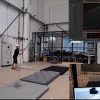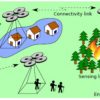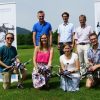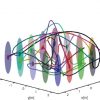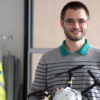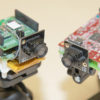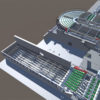The University of Klagenfurt launched the Karl Popper Doktorats- und Wissenschaftskolleg “Networked Autonomous Aerial Vehicles (NAV)“ in October 2017; having completed a cycle of just under four years, it is now coming to an end. Stephan Weiss, who serves as the speaker of the programme, reflects on a success story: “Together with our young researchers, we have succeeded in significantly expanding our international presence in robotics research.” This summer, four doctoral students – Agata Barciś, Michał Barciś, Roland Jung and Petra Maždin – will complete their doctoral theses on the topics of information distribution, decentralised synchronisation and coordination, and collaborative state estimation.
In all, there are more than 20 researchers working in the field of Networked Autonomous Aerial Vehicles at the University of Klagenfurt. Most of the research is carried out by the four research groups Mobile Systems (Christian Bettstetter), Multimedia Communication (Hermann Hellwagner), Pervasive Computing (Bernhard Rinner) and Control of Networked Systems (Stephan Weiss, Jan Steinbrener). Particular focus is placed on “flying robots” in the form of drones. “Our research addresses various issues: How can drones communicate with each other? How can they distribute tasks for a joint mission? How can they act as a swarm and synchronise their behaviour? How can they best assess their own state?”, Stephan Weiss explains.
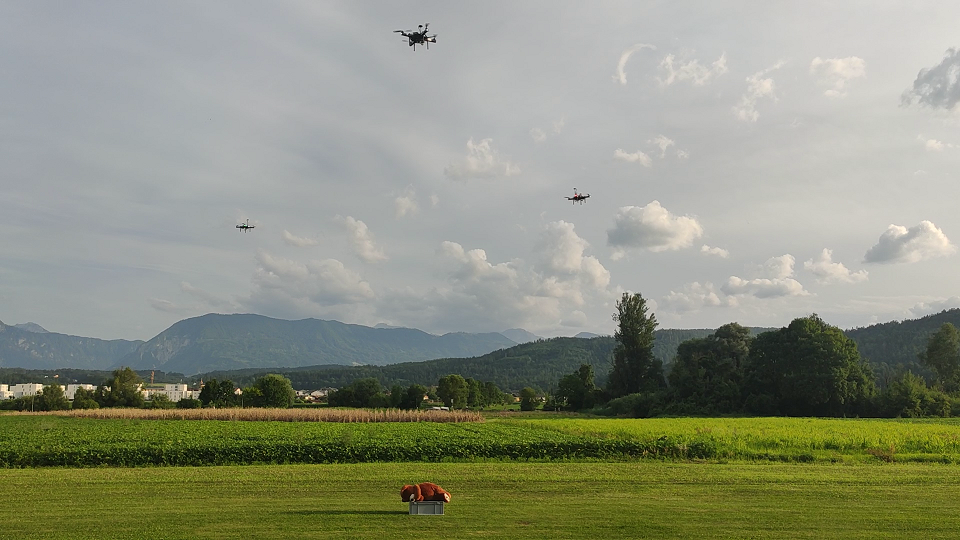
On 13 July 2021, the conclusion of the Karl Popper Kolleg NAV was marked with a flight demonstration at the model airfield of the I-MFG Wörthersee in Klagenfurt. The aim was to carry out a mission involving four drones – from task distribution, coalition building, collision avoidance, optimised information distribution, constellations for synchronised image capture to the generation of a 3D model of the captured objects.
This post is based on an article that was originally published on the Website of the University of Klagenfurt.
